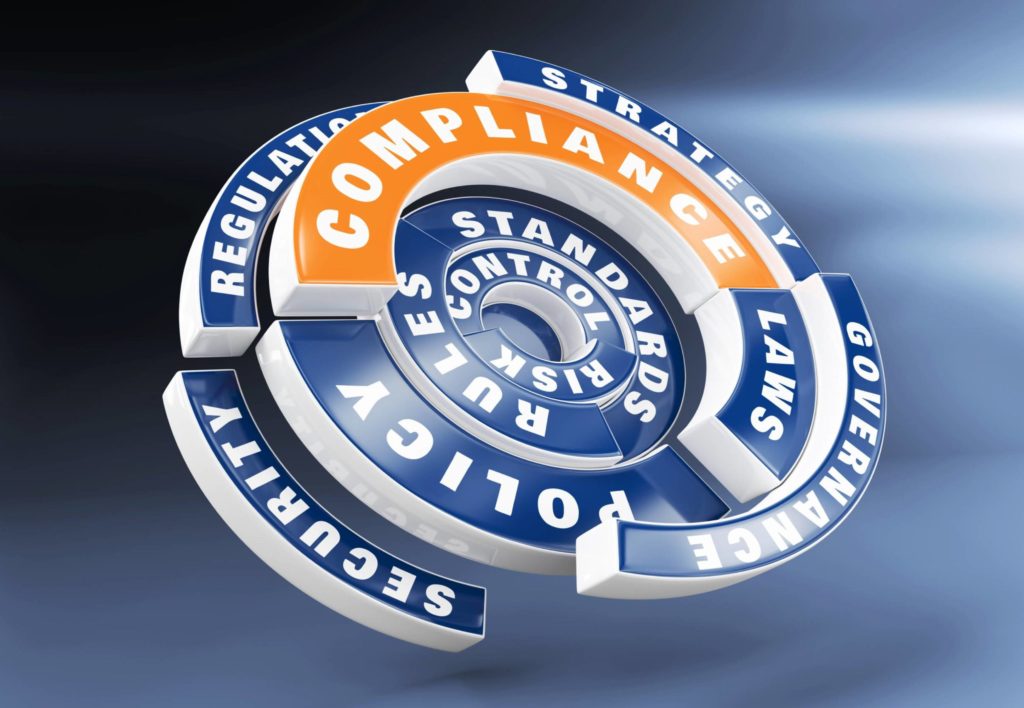FTC Compliance
Federal Trade Commission (FTC) Compliance Guide
Compliance with Federal Trade Commission (FTC) Advertising Rules
FTC's Advertisement, Label, and Label Claim Rules
The FTC is a US government agency that is responsible for enforcing laws related to advertising, marketing, and consumer protection. The agency has established rules and guidelines that businesses must follow when creating advertisements and making claims about their products.
Here are some of the key rules and guidelines that businesses must follow when creating advertisements, labels, and label claims.
Advertisement Rules
- Deceptive Advertising: The FTC prohibits businesses from engaging in deceptive advertising practices, including making false or misleading claims about their products or services.
- Endorsements and Testimonials: If a business uses endorsements or testimonials in its advertising, it must disclose any material connections between the endorser and the business.
- Unfair or Deceptive Acts or Practices: The FTC prohibits businesses from engaging in any unfair or deceptive acts or practices that could harm consumers.
- Environmental Marketing Claims: The FTC has established guidelines for businesses that make environmental marketing claims, including claims about the biodegradability, recyclability, or energy efficiency of their products.
Label Rules
- Labeling Requirements: Businesses must follow specific labeling requirements when selling products in the US. These requirements vary depending on the type of product, but they generally include information such as the product name, quantity, and ingredients.
- Country of Origin Labeling: If a product is imported into the US, it must be labeled with its country of origin.
- Health Claims: Businesses that make health claims on their product labels must ensure that those claims are supported by scientific evidence.
Label Claim Rules
- General Advertising Claims: Businesses must ensure that any claims made in their advertisements are truthful and not misleading.
- Specific Advertising Claims: Certain types of claims, such as claims about the effectiveness of a product or its ability to cure a specific condition, require specific scientific evidence to support them.
- Comparative Advertising Claims: If a business makes a comparative claim about its product, it must ensure that the comparison is truthful and not misleading.
The FTC Act allows the FTC to act in the interest of all consumers to prevent unfair, deceptive, or fraudulent acts or practices in commerce. The FTC has determined that a representation, omission or practice is deceptive if it is likely to mislead consumers and affect consumers' behavior or decisions about the product or service. Read more…
The FTC's rules and guidelines related to advertisements, labels, and label claims are designed to protect consumers from false or misleading claims about products. Businesses that violate these rules can face fines and legal action. By following these rules and guidelines, businesses can ensure that their advertising, labeling, and label claims are truthful and not misleading. For more information, visit the FTC's website or consult with a qualified legal professional.
Made in USA Standard
The U.S. Department of Agriculture’s (USDA) Agricultural Marketing Service (AMS), the U.S. Customs and Border Protection (CBP), the Food and Drug Administration, and the Federal Trade Commission (FTC) all have responsibilities related to the use of country of origin claims. While the FTC regulates voluntary claims of U.S. origin, foreign origin markings on imported products (e.g., “Made in China”) are regulated primarily by the CBP under the Tariff Act of 1930 and FDA. USDA rules apply to both imported and domestically produced products.
The Green Guides – Federal Trade Commission Advertising Rules
In-Depth Coverage: Marketing and Advertising Compliance
- Federal Trade Commission (FTC) Advertising Rules
- Made in USA Standard
- FTC Regulation on Environmental Claims
- Adverting and Marketing on the Internet
- Label Claims for Conventional Foods and Dietary Supplements
- Dietary Supplement Advertising: What is FTC's Truth-in-Advertising Law?
- USDA Country of Origin Labeling (COOL)
- FTC Rules & Regulations on Food Advertisement
Food Products Advertisement
The Federal Trade Commission (FTC), U.S. Food and Drug Administration (FDA), and U.S. Department of Agriculture (USDA) share jurisdiction over claims made by manufacturers of food products.
The Federal Trade Commission Act (FTC Act) prohibits “unfair or deceptive acts or practices,” and, in the case of food products, the FTC Act prohibits “any false advertisement” that is “misleading in a material respect.” Read more…
FDA's authority is embodied in part in Section 403(a) of the Federal Food, Drug, and Cosmetic Act (FD&C Act) which prohibits “labeling that is false or misleading in any particular.” Read more…
Agriculture Marketing Service (AMS) of the USDA is responsible for administration and enforcement of Country of Origin Labeling (COOL). Read more…
In-Depth Coverage: Importing Food Products
- What is FDA Food Safety Modernization Act (FSMA)?
- Prior Notice of Imported Foods
- FDA Food Facility Registration
- Risk-Based Preventive Controls for Human Food
- Risk-Based Preventive Control for Animal Food
- Protect Food against Intentional Adulteration
- What is Foreign Supplier Verification Program (FSVP)?
- What is FSMA Produce Safety Rule?
In-Depth Coverage: Customs Valuation
In-Depth Coverage: Importing Medical Device
In-Depth Coverage: Trade Remedies
Environmental Claims
Marketers should not make broad, unqualified general environmental benefit claims like ‘green’ or ‘eco-friendly.’ The Federal Trade Commission (FTC) issued revised “Green Guides” that are designed to help marketers ensure that the claims they make about the environmental attributes of their products are truthful and non-deceptive. Read more
Dietary Supplement Advertising
The Federal Trade Commission (FTC) enforces laws against “unfair or deceptive acts or practices” in dietary supplement advertising to ensure that consumers get accurate information about dietary supplements so that they can make informed decisions about these products. Read more…
Advertising and Marketing on the Internet
Consumers around the world are increasingly turning to their computers to buy a wide array of goods and services. In the online marketplace, consumers can transact business without the constraints of time or distance. One can log on to the Internet day or night and purchase almost anything one desires. Read more…
In-Depth Coverage: Country of Origin
- Country of Origin of Imported Merchandise
- Customs Ruling: Country of Origin
- Country of Origin: Food Products
- Country of Origin: Chemical and Pharmaceutical Products
- Country of Origin & Country of Manufacture: CBP vs. FDA
- Country of Origin: Substantial Transformation or Country of Assembly Test
- Country of Origin and Free Trade Agreement
- Country of Origin and Section 301
In-Depth Coverage: Importing Cosmetics
Quick Link To U.S. Customs & Import Requirements
Customs Clearance and Import Requirements
- Entry of Imported Merchandise
- What is Section 321 Entry?
- What is Automated Commercial Environment (ACE)
- What is an Automated Broker Interface (ABI)?
- Who is Ultimate Consignee?
- What is Non-Resident Importer Program?
- Country of Origin of Imported Merchandise
- What is the Country of Assembly?
- What if the FDA's Country of Manufacture?
- Marking of Country of Origin on U.S. Imports
- What is Customs Bond?
- Reconciliation Prototype and Bond Rider
- Who Needs a Customs Broker?
- What is Customs Ruling Program?
- Classification of Imported Goods
- How is imported merchandise appraised?
- What are Import Quotas?
- What are Trade Remedy Duties?
- Antidumping Duty (AD) and Countervailing Duty (CVD)
- What is Foreign Trade Zone (FTZ)?
- What is Importer Security Filing (ISF)?
- What is Temporary Importation under Bond (TIB)
- What is In-Bond Process?
Design your own logistics
To move your cargo from its current location through customs to its final destination we will partner with you to find the best solution for your business.
Guidance on Customs & Logistics Solution for traditional and e-commerce importers and exporters
Importer Security Filing (ISF)
An ISF is required when cargo (ocean only) laden on vessel at a foreign port is destined for shipment to the U.S. Under ISF rule, some importing information and details regarding cargo must be transmitted to the CBP at least 24 hours before goods are loaded onto the vessel.
Customs Clearance
All goods imported into the U.S. are required to be declared to CBP. Our customs broker will help you stay in compliance with customs laws and regulations and clear your goods quickly and efficiently with our electronic Automated Commercial Environment (ACE) and Automated Broker Interface (ABI) Single Window System.
Section 321 Entry
Section 321 entry allows importing free of duty and tax for shipments imported by one person on one day having a fair retail value in the country of shipment not more than $800. We provide our resident and non-resident clients with dedicated ACE eManifest solutions for Section 321 entry of all modes of transportation.
Warehousing & Distribution
Our warehouse facility offers great potential for serving as a regional hub with over 145,000 SF storage capacity close to Los Angeles Airport & Los Angeles/Long Beach Sea port. With our extensive experience in freight services, your import/export cargo will be handled quickly and effectively.
Non-resident Importer Program
If you want to sell your products in U.S. marketplaces, but you are a business owner located outside of the U.S., and do not have an entity or physical presence in the U.S., you need to be established as a Foreign Importer of Record before your goods can be imported into the U.S. We can help you.
E-Commerce
The Internet has made it easy to find and purchase items from almost anywhere in the world. Our e-commerce experts will help you find the right solution for your international transportation, customs clearance, and delivery to your final destination. We also provide value-added repackaging, warehousing and distribution services.
FDA-Regulated Products and Import Requirements
- What is Food Safety Modernization Act (FSMA)?
- Prior Notice of Imported Foods
- Food Facility Registration
- Risk-Based Preventive Controls for Human Food
- Risk-Based Preventive Control for Animal Food
- Standards for the Growing, Harvesting, Packing, and Holding of Produce for Human Consumption
- What is Foreign Supplier Verification Program (FSVP)?
- Protect Food against Intentional Adulteration
- FDA Regulated Product in Foreign Trade Zone (FTZ)
- Entry Review Process for FDA Regulated Products
- Country of Origin VS Country of Manufacture
- Foods Regulated by FDA or USDA: What is the Difference?
- Label and Labeling Claims for Conventional Food and Dietary Supplements
- What is USDA Country of Origin Labeling (COOL)?
- Import for Export of FDA Regulated Products
- FDA Regulated Products in Personal Baggage or Sending by Mail or Courier
- International Mail Facility (IMF) and FDA Regulation
- Importing Biological Product Regulated by CBER
- Importing Cosmetics and Voluntary Cosmetic Registration Program (VCRP)
- Importing Drugs into the U.S.
- Importing OTC Drugs into the U.S.
- Importing Veterinary Drugs into the U.S.
- Importing Tobacco Products into the U.S.
- Importing Medical Devices into the U.S
- Importing Food Products into he U.S.
- Importing Radiation-Emitting Products into the U.S.





















